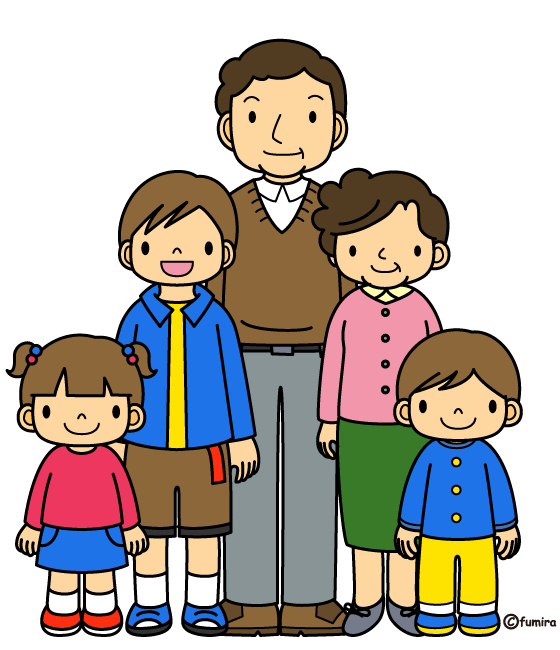The other day, one of my students exclaimed, “why does Japanese have to have 2 words for everything!” – “2 words for everything?” Umm, when you are learning family terms, I guess it is a legit complaint.
Japanese like to have a boundary between inside and outside. The most distinctive boundary is that of a family. We use different words for members of our own family (humble form) and those of other people’s family (honorific form).
|
male |
English |
female |
||
|
My own |
Somebody else’s |
Somebody else’s |
My own |
|
|
Chichi |
Otou_san おとうさん |
parents |
Okaa_san おかあさん |
Haha はは |
|
Sohu そふ |
Ojii_san おじいさん |
grand -parents |
obaa_san おばあさん |
Sobo そぼ |
|
Ani あに |
Onii_san おにいさん |
older |
Onee_san おねえさん |
Ane あね |
|
Otouto おとうと |
Otouto_san おとうとさん |
younger |
Imouto_san いもうとさん |
Imouto いもうと |
|
Oji おじ |
ojisan おじさん |
parent’s |
oba_san おばさん |
Oba おば |
|
Otto おっと |
? |
Spouse |
? |
Tsuma つま |
|
Shujin しゅじん |
Goshujin ごしゅじん |
Spouse (old-fashioned) |
Oku_san おくさん |
Kanai かない |
|
Musuko むすこ |
Musuko_san むすこさん |
Child |
Ojou_san おじょうさん |
Musume |
|
Oi おい |
Oigo_san おいごさん |
Your Sibling’s child |
Meigo_san めいごさん |
Mei めい |
Little children are not expected to differentiate these. They are to learn the honorific set first to call (as opposed to “refer to”) members of their own family, although more and more children use パパ and ママ instead of おとうさん and おかあさんthese days.
I also have to mention that the words for a spouse are quite controversial as “(go)shujin” for a husband means a “Master” and both “kanai” (my wife) and “okusan” (your or somebody else’s wife) means “(somebody) inside the house” and many couples are starting to use more neutral words, 夫(おっと/otto) for her own husband and 妻(つま/tsuma) for his own wife, when they refer to their own spouse. I refer to my husband as 夫(おっと/otto)too when I’m talking to people I know very well, but if I am at a job interview, I would still use “shujin”, annoyingly. Hopefully in 10 years’ time, people’s perception will be different.

